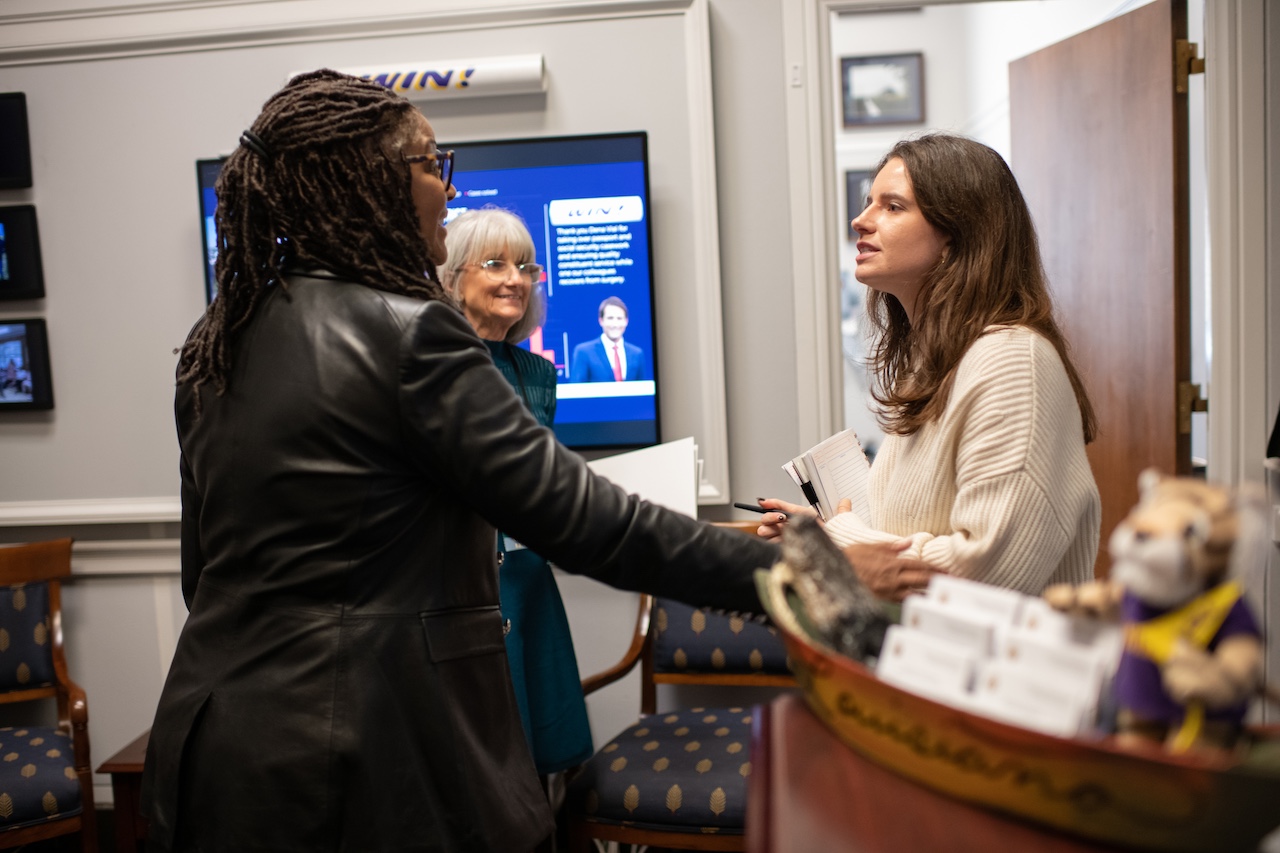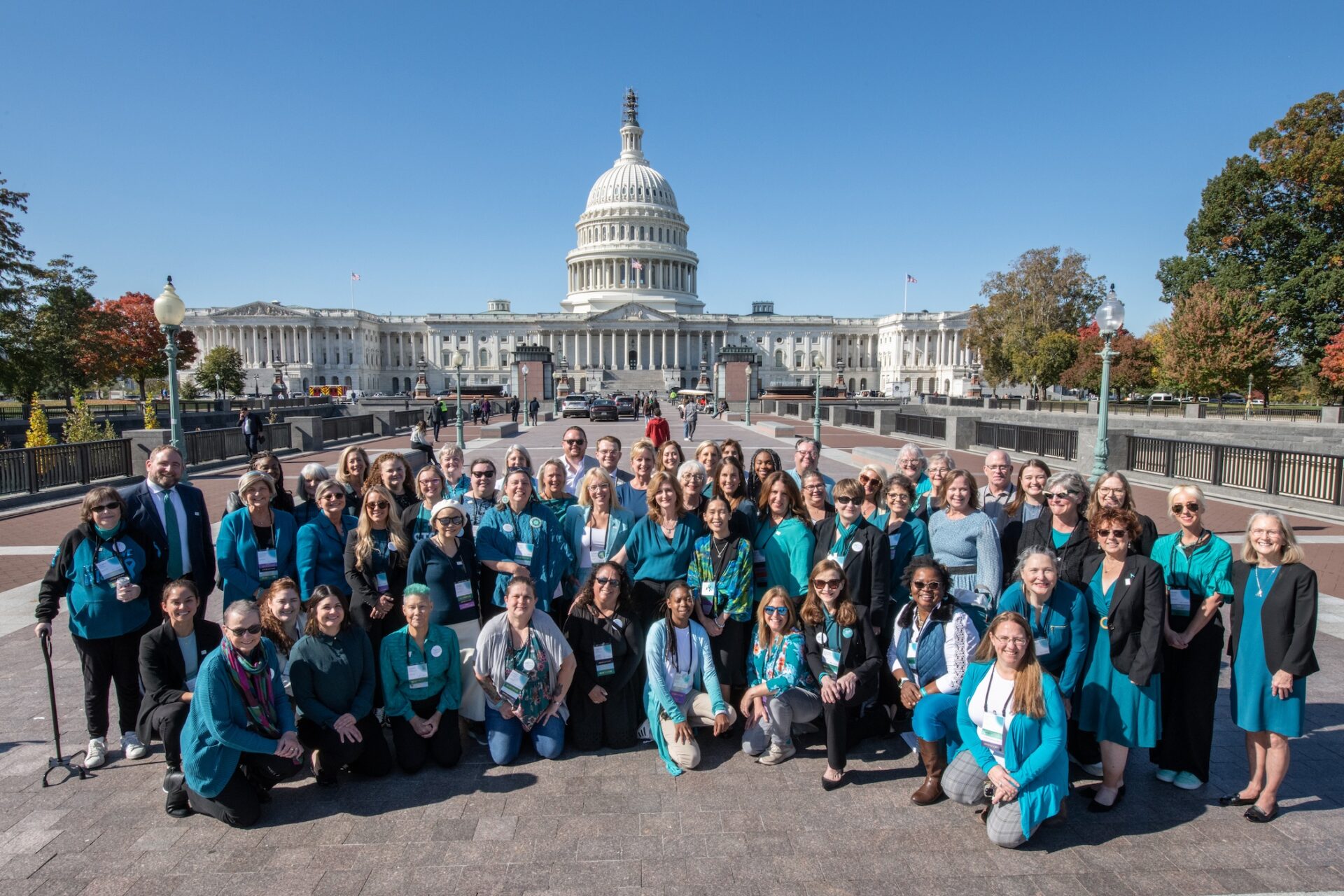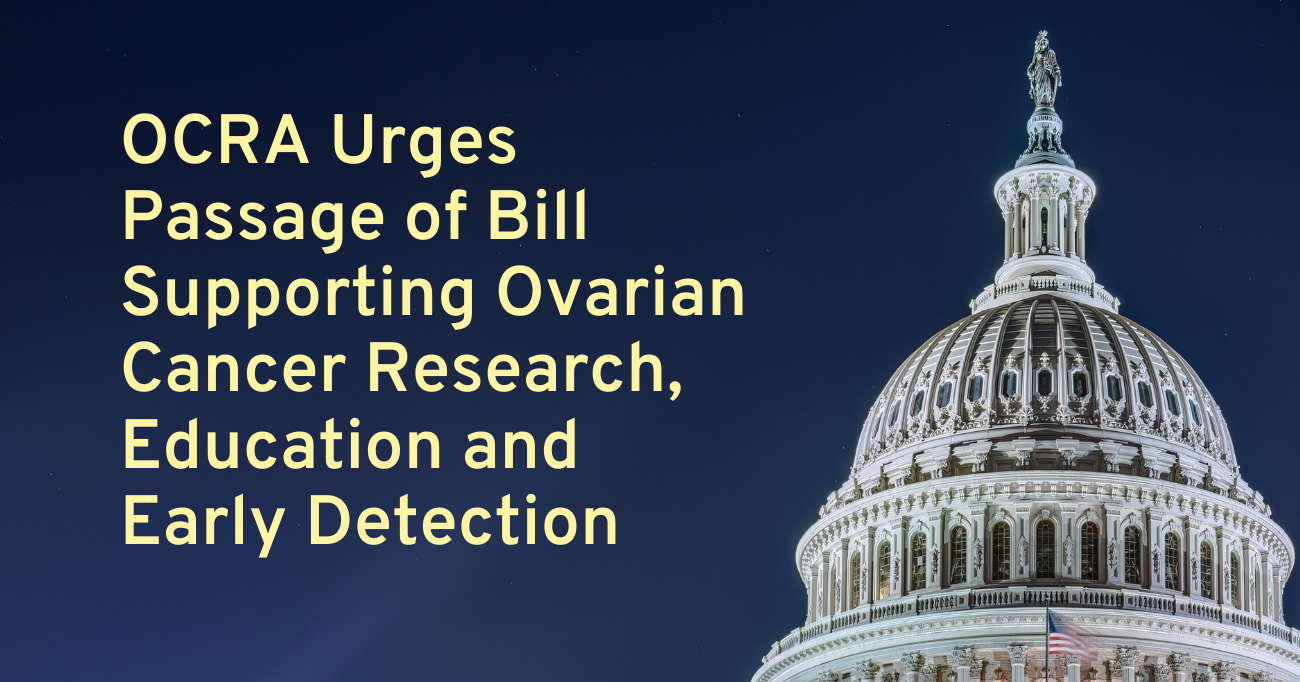FY26 Budget Watch, Advocacy Results, and State-Level Progress
As Congress ramps up work on the FY26 federal budget, advocates are focused on maintaining vital cancer programs and advancing state policies that support gynecologic cancer patients. Here’s what’s happened over the last month—and what’s next.
Budget Update: CDC Cancer Programs at Risk
The administration’s proposed FY26 budget proposal includes the elimination of funding for the CDC’s Division of Cancer Prevention and Control (DCPC)—a division that oversees programs like the Ovarian Cancer Control Initiative (OCCI) and Johanna’s Law. It is important to note that the President’s budget is only a blueprint proposal and the appropriations process will likely produce a very different picture. But the proposed elimination is concerning.
Congress holds the power to reject or revise these proposals, so OCRA is working hard to educate legislators. Advocacy efforts are focused on ensuring lawmakers understand the real-world impact of these programs and their vital importance to our communities.
Stay tuned for action alerts to help support cancer prevention and education funding in the FY26 budget.
House Letter Closes with 98 Signers
The Dear Colleague letter in support of $45 million in FY26 funding for the Department of Defense’s Ovarian Cancer Research Program (OCRP) officially closed with 98 bipartisan signatures.
This is a strong demonstration of support—especially following recent cuts to the program. This showing sends a clear message as appropriations work continues.
The Senate OCRP letter led by Sen. Cory Booker (D-NJ) is still accepting signatures and is expected to close on May 30, so you still have time to reach out. Click here to take action: https://www.votervoice.net/OCRA/Campaigns/126665/Respond
Senate Hearing Recap: Biomedical Research and Public Health Under the Microscope
Over the past month, the Senate Appropriations Subcommittee on Labor, HHS, Education, and Related Agencies held two notable hearings touching on public health, research, and agency oversight.
- On April 30, the subcommittee hosted leaders from the research community to discuss biomedical innovation and federal support for research institutions. Highlights included testimony from leaders at academic medical centers and advocacy organizations, who emphasized the importance of sustained NIH funding, protecting early-career scientists, and ensuring diverse participation in research.
- On May 20, the committee heard testimony from Robert F. Kennedy, Jr., addressing the administration’s proposed budget and cuts to HHS. In the session senators on both sides raised concerns about the politicization of health science and the role of federal agencies in maintaining public confidence. Importantly, the necessity of continued robust support for cancer research was recognized by the entire panel.
These hearings underscored both bipartisan support for biomedical research and the ongoing challenges facing public health communication and policy. Advocates should expect these themes to shape budget and oversight discussions throughout the FY26 cycle.
State Action: Legislative Wins Continue
Across the country, advocates are helping drive meaningful policy change:
- New Jersey’s biomarker testing coverage law is now in effect, boosting access to personalized treatment.
- Massachusetts held a public hearing on similar legislation in late April. OCRA Advocate Leaders provided testimony, and the bill is now under committee consideration.
- North Dakota officially enacted a ban on copay accumulator programs on May 3, helping ensure that patient financial assistance counts toward insurance cost-sharing requirements.
- California introduced new legislation aimed at increasing public education around gynecologic cancer symptoms. The bill is in early stages but reflects growing state-level awareness.
OCRA continues to support advocates in these and other states to ensure patient voices remain at the center of policy conversations.
Advocate’s Take
The need to protect federal cancer programs and expand state-level protections is more urgent than ever. The last month has shown that your efforts are moving the needle—from 98 House signers on the House OCRP letter to new state laws making a difference in patients’ lives.
We’ll return in June with updates on the budget process, the Senate’s next moves, and the evolving landscape of state legislation.
Thank you for standing strong for the gynecologic cancer community!


